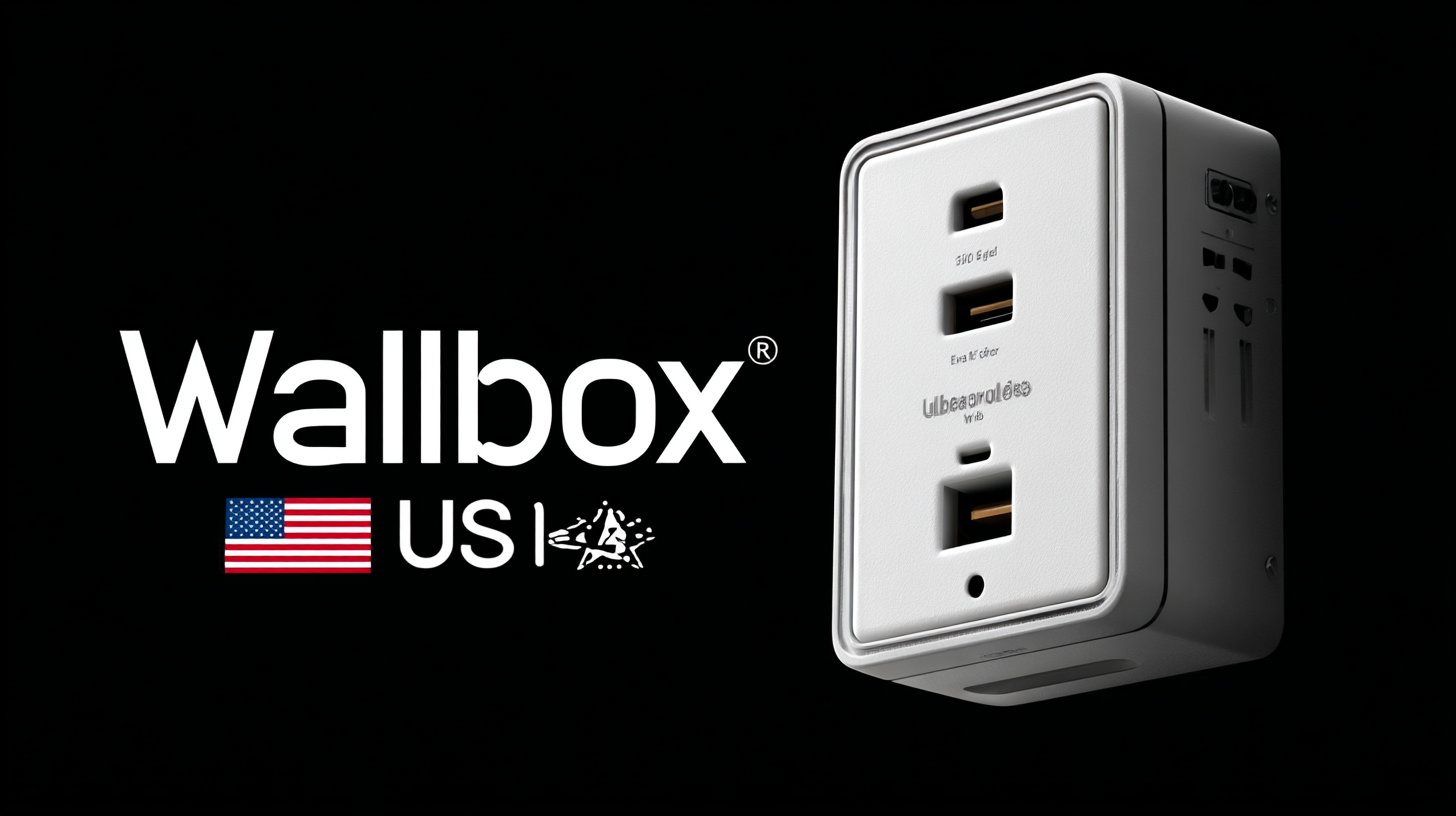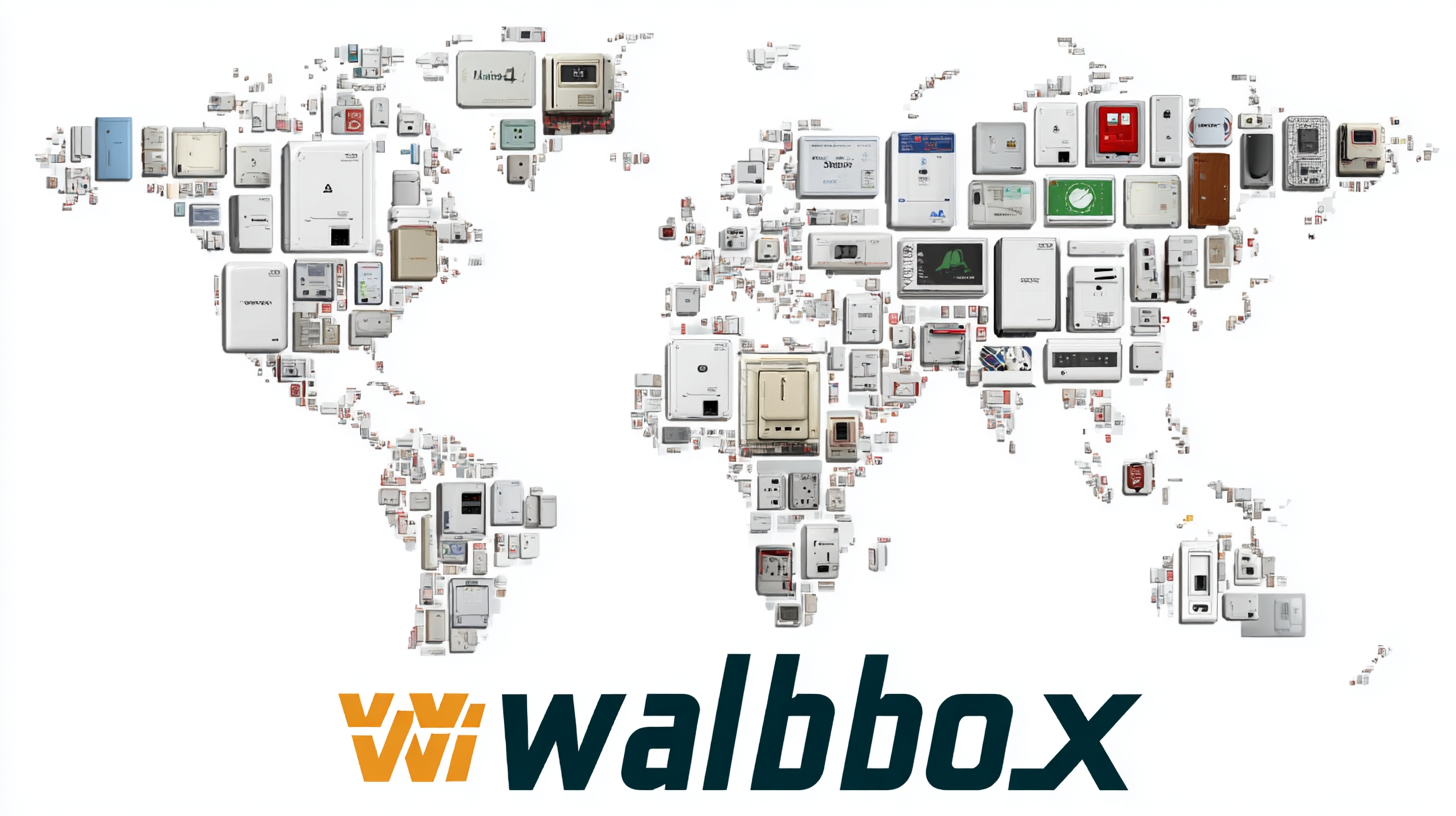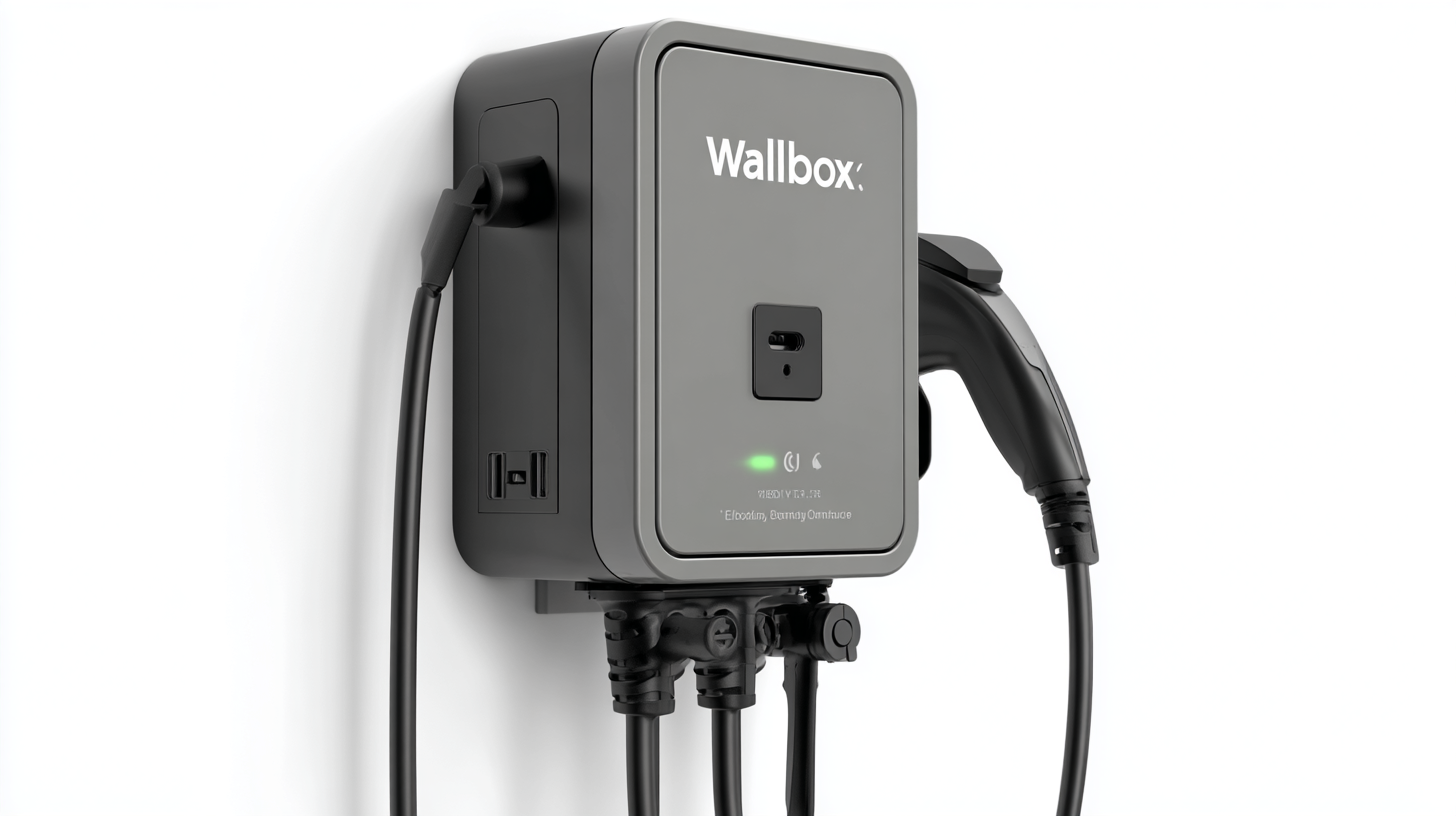As the global demand for electric vehicles continues to surge, the significance of Wallbox Chargers has never been more pronounced. Understanding the intricacies of import and export certifications is crucial for stakeholders involved in the procurement of these essential charging solutions. In this blog, we will explore the anticipated technological advancements for 2025, shedding light on how these trends will influence the market for Wallbox Chargers. By addressing the complexities of certification processes and regulatory standards, we aim to equip manufacturers, suppliers, and consumers with the knowledge they need to navigate the increasingly competitive landscape. Join us as we delve into the best practices for securing Wallbox Chargers that meet global standards while aligning with emerging technologies and market demands.

In the rapidly evolving landscape of electric vehicle (EV) charging solutions, understanding the import and export certifications is crucial for optimal Wallbox charger procurement. These certifications not only ensure compliance with safety standards but also enhance market access and consumer trust. As global markets expand, it's vital for companies to navigate the regulatory frameworks that govern EV chargers. Recent developments, such as the certification of the Quasar 2 by UL Solutions, highlight the growing importance of recognized certifications in enhancing product acceptance in key markets like the U.S.
According to a report by the International Energy Agency, the global EV stock reached 10 million in 2020, underscoring the demand for efficient and certified charging solutions. Products that carry reputable certifications often experience accelerated acceptance and sales in various regions. Thus, manufacturers must prioritize acquiring the necessary certifications for their products to remain competitive and compliant in diverse markets.
**Tips:**
1. Always verify the certification standards relevant to your target market. Different regions may have distinct requirements that impact import and export processes.
2. Engage with certified testing bodies early in the development process to identify potential certification hurdles before product launch.
3. Stay informed about the latest certification developments, as evolving regulations could influence market entry strategies.
| Region | Certification Type | Issuing Authority | Applicable Standards | Validity Period |
|---|---|---|---|---|
| North America | UL Listing | Underwriters Laboratories | UL 2202 | 3 years |
| Europe | CE Marking | European Commission | EN 61851 | Indefinite |
| Asia-Pacific | CCC Certification | China Quality Certification Center | GB/T 18487 | 5 years |
| Australia | C-Tick Mark | Australian Communications and Media Authority | AS/NZS 3820 | Indefinite |
| South America | INMETRO Certification | Instituto Nacional de Metrologia | NBR 14136 | 3 years |
When procuring wallbox chargers for electric vehicles, understanding the key certifications required in major markets is essential for ensuring compliance and quality. Certifications can vary significantly based on region—globally recognized standards such as UL (Underwriters Laboratories) in North America, CE (Conformité Européenne) in Europe, and CCC (China Compulsory Certification) in China are crucial for products entering these markets. Each certification not only denotes adherence to safety and performance standards but also addresses consumer confidence and regulatory compliance.
In addition, certain markets may require specific eco-labels or energy efficiency certifications, such as the Energy Star label in the United States or the EU Energy Label in Europe, which can further enhance marketability. For manufacturers and suppliers aiming to penetrate global markets, it is vital to conduct thorough research on the applicable certifications in each target country. This ensures smooth customs clearance, minimizes the risk of liability issues, and fosters trust with consumers looking for reliable and safe charging solutions.
Quality standards play a crucial role in boosting wallbox charger sales, particularly in the evolving landscape of electric vehicle (EV) procurement. As global demand for EV charging solutions surges, companies must ensure their products not only comply with international certifications but also meet stringent quality criteria that consumers have come to expect. Achieving such standards can significantly enhance a manufacturer's reputation and marketability in a competitive environment.
 For instance, gaining CTEP certification for fast chargers underscores a commitment to transparency and reliability, which are pivotal in gaining customer trust.
For instance, gaining CTEP certification for fast chargers underscores a commitment to transparency and reliability, which are pivotal in gaining customer trust.
Moreover, the acquisition of established charging providers can further strengthen a brand's position within the market. With strategic acquisitions, companies can integrate advanced technologies and widen their service offerings, reinforcing their commitment to quality. As seen in recent developments, collaborations to enhance home charging solutions illustrate the importance of aligning product quality with customer needs, ensuring that innovations translate into better user experiences. By prioritizing quality standards, manufacturers not only cater to regulatory demands but also pave the way for greater customer satisfaction, driving sales in this dynamic sector.
Navigating the complexities of import and export certifications for wallbox chargers can be a daunting task, especially in today’s global market. Compliance with international regulations is crucial, as over 20% of wallbox chargers are sold in markets that have stringent certification requirements. For instance, the International Electrotechnical Commission (IEC) has established common safety and performance tests, which must be adhered to in various regions, including Europe and North America. Failure to meet these standards can lead to costly delays and potential fines.
Tip: Before initiating the procurement process, familiarize yourself with the specific certifications required in your target market. Engage with local experts or certification bodies to gain insights into the distinct compliance landscapes each country has, which can save both time and resources.
Furthermore, the surge in electric vehicle adoption has spurred increased scrutiny on wallbox chargers. Data indicates that by 2026, the global demand for charging infrastructure could grow by up to 50%. As such, companies must remain proactive about changes in regulations and ensure that they maintain compliance throughout their supply chain. Understanding the logistics and documentation needed for imports and exports can greatly streamline operations.
Tip: Consider implementing compliance management software to track certification status and regulatory updates. This can prove invaluable in keeping your procurement processes efficient and compliant across different regions.

The future of wallbox charger certification is closely tied to evolving global policies aimed at reducing carbon emissions and promoting electric vehicle (EV) adoption. According to a report from the International Energy Agency (IEA), sales of electric vehicles are projected to reach 23 million units globally by 2030, necessitating a robust infrastructure capable of supporting this growth. In response, countries are implementing stricter regulations regarding the safety and efficiency of charging equipment, which directly influences certification processes for wallbox chargers. For example, the European Union's Ecodesign Directive is expected to set minimum requirements for energy efficiency, encouraging manufacturers to adopt certifications that comply with these regulations.
Moreover, the continued push for interoperable charging solutions emphasizes the importance of standardized certification frameworks. Research by Navigant Research indicates that a harmonized approach to certification across different markets can significantly reduce costs for manufacturers and increase consumer confidence. As policies around the world align toward sustainability, manufacturers must stay abreast of these trends to ensure their products meet both regional and international certification standards, providing a competitive edge in the growing EV market.








